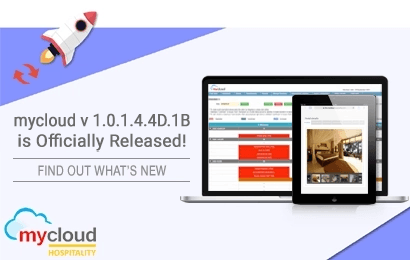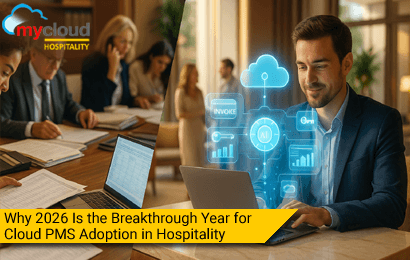In today’s highly competitive hospitality industry, data is more than just numbers—it’s the key to unlocking growth, increasing efficiency, and enhancing guest satisfaction. With digital transformation reshaping the sector, Business Intelligence (BI) has emerged as a game-changer for hotel operators across India. From boutique hotels in Jaipur to luxury resorts in Goa, hoteliers are leveraging BI to make smarter, data-driven decisions that drive profitability.
But how exactly does BI impact the hospitality industry? And how can Indian hotels maximize its potential? Let’s explore.
Why Business Intelligence (BI) Matters in Hospitality?
The hospitality industry is dynamic, with fluctuating occupancy rates, seasonal demand, and ever-evolving guest expectations. Traditional decision-making, based on intuition or historical performance alone, is no longer enough. Business Intelligence (BI) empowers hotels to analyze vast amounts of data in real time, leading to sharper insights and faster decisions.
A study by Statista estimates that the global hospitality analytics market will reach $12.2 billion by 2027, driven by increasing adoption of BI solutions. In India, hotels like The Oberoi Group and Taj Hotels are already using BI to refine pricing strategies, enhance guest experiences, and optimize operational efficiency. With BI, hotels can:
- Predict demand fluctuations and adjust pricing dynamically.
- Optimize staffing levels based on booking trends.
- Enhance guest satisfaction through personalized services.
By leveraging BI, hotels can move from reactive to proactive decision-making, giving them a competitive edge in an ever-changing market. Let’s explore how to maximize BI for profit growth.
Expert Insights: How to Maximize BI for Profit Growth
Insight 1: Focus on Data Integration
One of the biggest hurdles in hospitality analytics is fragmented data. Hotels often rely on multiple systems—Property Management System (PMS), Customer Relationship Management (CRM), Point-of-Sale (POS), and Backoffice systems—all generating valuable yet siloed data.
Integrating these systems into a unified BI dashboard allows hoteliers to get a 360-degree view of their business. According to a report by Deloitte, hotels that consolidated their data saw a 22% increase in operational efficiency.
For instance, ITC Hotels integrated its PMS and CRM systems to track guest preferences, allowing personalized room recommendations and loyalty rewards. The result? A 15% boost in repeat bookings.
With seamless data integration, hotel managers can analyze trends across departments, improving both revenue and guest experiences. Let’s explore predictive analytics next.
Insight 2: Prioritize Predictive Analytics
Imagine knowing exactly when your hotel will experience peak occupancy—or better yet, adjusting pricing in real-time to maximize revenue. Predictive analytics makes this possible by analyzing historical data, market trends, and external factors like weather and local events.
A case in point is The Leela Palace, Bengaluru, which implemented predictive BI tools to optimize pricing based on market demand. By dynamically adjusting rates, they increased their occupancy rate by 18% and RevPAR (Revenue Per Available Room) by 12%.
A McKinsey report states that hotels using predictive analytics see a 20-25% improvement in revenue management outcomes.
With AI-powered forecasting, hoteliers can make data-driven decisions on room pricing, promotions, and inventory management—leading to higher profitability. Next, let’s dive into guest-centric metrics.
Insight 3: Emphasize Guest-Centric Metrics
Guest satisfaction is the backbone of any successful hotel business. BI allows hoteliers to track and analyze guest reviews, booking behaviors, and feedback across platforms to deliver hyper-personalized experiences.
For example: Taj Hotels uses sentiment analysis tools to assess online reviews from platforms like TripAdvisor and Google Reviews. By identifying recurring complaints (e.g., slow check-in, room service delays), they made targeted improvements, leading to a 30% reduction in negative reviews.
Additionally, BI can uncover upselling and cross-selling opportunities. If a frequent business traveler books a room, AI-driven insights might suggest a spa package or airport transfer, increasing ancillary revenue.
A study by PwC India found that hotels using guest analytics saw a 25% increase in customer loyalty and retention.
Understanding guest-centric data helps hotels build lasting relationships and improve overall satisfaction. Let’s explore the power of real-time reporting next.
Insight 4: Invest in Real-Time Reporting
In a fast-paced industry like hospitality, real-time insights can mean the difference between profit and missed opportunity. Monitoring key performance indicators (KPIs) such as occupancy rates, revenue, and competitor pricing in real time enables agile decision-making.
Example: A Mumbai-based luxury hotel implemented an AI-powered BI dashboard that tracked competitor pricing in real time. By adjusting rates dynamically, they outperformed competitors by 10% in average daily rate (ADR) during peak seasons.
According to Forrester Research, hotels using real-time BI analytics reported a 40% increase in revenue performance compared to those relying on static reports.
With real-time reporting, hoteliers can react faster to market trends, optimize pricing strategies, and improve overall profitability. Next, let’s look at common BI implementation challenges.
Overcoming Common Challenges in BI Implementation
Despite the clear benefits, many hotels face hurdles in adopting BI solutions. The three most common challenges include:
Data Silos & Integration Issues – Hotels struggle to merge data across platforms.
Solution: Invest in cloud-based BI solutions like Oracle Hospitality or SAP Analytics for seamless integration.
Limited Technical Expertise – Many hotel teams lack data analytics skills.
Solution: Upskilling staff with BI training programs and hiring data specialists.
Budget Constraints – BI tools can be costly for mid-sized hotels.
Solution: Start with affordable BI platforms like Power BI, Tableau, or Zoho Analytics, which offer scalable solutions.
A report by NASSCOM highlights that 76% of Indian hoteliers recognize BI as crucial but face adoption challenges. However, strategic implementation can help overcome these barriers. Let’s explore how to get started.
Implementing BI Solutions in Your Hotel
To successfully integrate BI, hotels should follow these practical steps:
- Assess Your Data Infrastructure – Identify where your data resides and evaluate existing systems.
- Choose the Right BI Platform – Opt for tools that align with your hotel’s size, budget, and analytical needs.
- Train Your Team – Equip staff with the skills to interpret BI insights effectively.
- Foster a Data-Driven Culture – Encourage decision-making based on analytics rather than intuition.
For instance, Lemon Tree Hotels adopted BI-driven performance dashboards, leading to a 20% increase in operational efficiency.
By taking a structured approach, hotels can leverage BI for sustained profitability and enhanced guest experiences.
Conclusion
Business Intelligence (BI) is no longer a luxury—it’s a necessity for Indian hotels striving to stay competitive in an evolving market. From integrating siloed data across PMS, CRM, and POS systems to leveraging predictive analytics and real-time reporting, BI empowers hoteliers to optimize revenue, enhance guest satisfaction, and improve operational efficiency.
However, successful BI adoption requires the right technology. This is where mycloud PMS stands out as a game-changer. It is a complete hospitality management platform offering 200+ interfaces, an open API, and a fully integrated ecosystem that enables seamless BI integration too. With mycloud PMS, hoteliers can access actionable insights, automate data consolidation, and drive smarter, data-driven decisions—all from a single dashboard.
Now is the time to embrace BI and future-proof your hotel’s success. By adopting a comprehensive, tech-driven approach, you can unlock new revenue opportunities, improve guest experiences, and gain a competitive edge in India’s dynamic hospitality sector.
Are you ready to transform your hotel with BI? Leverage mycloud PMS and step into a smarter, data-powered future!










